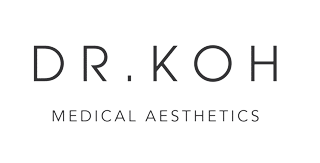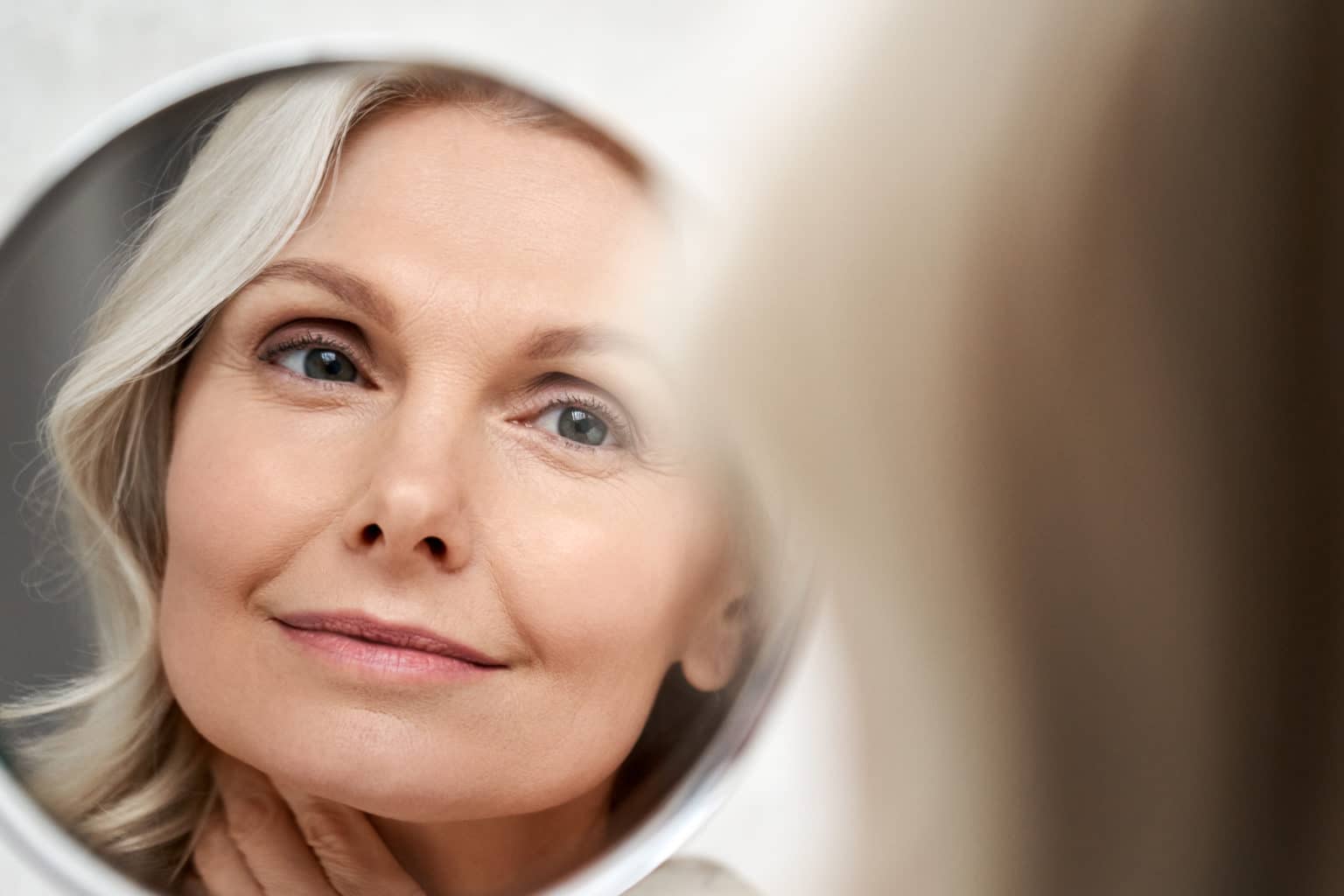Menopause is a significant milestone in a woman’s life, heralding profound changes not only in physiological health but also in skin condition. The onset of menopause brings about a decrease in estrogen levels, a key hormone responsible for maintaining skin moisture, elasticity, and thickness. This hormonal shift leads to a noticeable reduction in collagen production, the protein that gives skin its firm, youthful appearance. As a result, women may experience increased dryness, a loss of skin elasticity, and a more pronounced appearance of fine lines and wrinkles. While holistic approaches involving hydration, nutrition, and lifestyle adjustments form the bedrock of managing these changes, medical aesthetic treatments offer a targeted and effective way to address the aesthetic challenges brought on by menopause.
Injectables: Precision and Elegance
In the realm of medical aesthetics, injectables such as Botulinum Toxin and dermal fillers emerge as potent tools against the visible signs of aging exacerbated by menopause. Botulinum toxin works by temporarily relaxing facial muscles, thus reducing the appearance of dynamic wrinkles that occur with facial expressions. On the other hand, dermal fillers are designed to restore lost volume and provide structural support to the skin, effectively smoothing out deeper lines and wrinkles and reviving the skin’s youthful plumpness. The success of these treatments hinges on the expertise and precision of the medical aesthetics professional administering them, ensuring that the results not only enhance the patient’s natural beauty but also maintain a high degree of safety and satisfaction.
Advanced Professional Treatments
Beyond injectables, a suite of advanced professional treatments offers hope and rejuvenation for skin undergoing menopausal changes:
- Laser Therapy: This treatment stands out for its ability to target and correct pigmentation issues, improve skin texture, and promote a more even skin tone. By delivering focused light energy to the skin, laser therapy can stimulate collagen production, helping to mitigate the effects of collagen loss during menopause. Various types of lasers are available, each tailored to address specific skin concerns, making a consultation with a skincare professional essential to select the most appropriate treatment.
- Micro-needling: Micro-needling involves creating tiny punctures in the top layer of the skin, which triggers the body’s wound healing processes and results in increased collagen production. This can be particularly beneficial for restoring the skin’s elasticity and reducing the appearance of fine lines. When combined with topical treatments, such as growth factors or hyaluronic acid, the benefits of micro-needling can be significantly enhanced.
- Radiofrequency Microneedling: This innovative treatment combines the collagen-inducing effects of micro-needling with the deep tissue heating capabilities of radiofrequency energy. The result is a dual-action treatment that not only stimulates collagen production but also tightens the skin, offering an effective solution to the loss of skin elasticity and firmness that often accompanies menopause.
- Chemical Peels: Chemical peels involve the application of a chemical solution to the skin, which exfoliates the outer layers, revealing fresher, more vibrant skin underneath. This process can improve the texture of the skin, reduce the appearance of fine lines, and enhance skin brightness, making it an excellent option for addressing the dull, lackluster skin that can result from menopausal changes.
- High-Intensity Focused Ultrasound (HIFU) Therapy: HIFU therapy uses focused ultrasound energy to target the deeper layers of the skin, stimulating collagen production without the need for invasive surgery. This non-invasive treatment can lift and tighten skin, reducing the appearance of wrinkles and improving skin texture.
- Intense Pulsed Light (IPL) Therapy: IPL therapy uses broad-spectrum light to target the dermis without harming the epidermis. It’s effective for treating pigmentation, redness, and photoaging, offering skin rejuvenation by stimulating collagen production and improving overall skin tone.
- Platelet-Rich Plasma (PRP) Therapy: PRP involves extracting the patient’s own blood, processing it to concentrate the platelets, then reinjecting it into the skin. This process harnesses the healing power of growth factors contained in platelets to regenerate the skin, improve skin texture, and reduce signs of aging.
Skin Care
In addition to these treatments, effective skincare plays a crucial role in addressing menopausal skin concerns.
- Retinoids: Retinoids are widely celebrated for their anti-aging properties, including their ability to reduce the appearance of fine lines and improve skin texture. However, their use during menopause must be approached with caution, as they can exacerbate skin dryness, a common issue during this life stage. Initiating treatment with lower concentrations of retinoids and gradually increasing the dosage allows the skin to adapt, minimizing the risk of irritation. It is often advisable to use retinoids in conjunction with hydrating skincare products to maintain a healthy balance and ensure that the skin benefits from their rejuvenating effects without undue stress.
- Hyaluronic Acid: Hyaluronic acid is a powerhouse ingredient for menopausal skin, renowned for its ability to attract and retain moisture. This is particularly crucial during menopause, as decreased estrogen levels can lead to drier, less supple skin. Incorporating hyaluronic acid into your skincare regimen, whether through serums, moisturizers, or professional treatments, can significantly boost skin hydration, plumpness, and overall radiance, addressing the dryness and loss of elasticity characteristic of menopausal skin changes.
Embracing the New Stage with Confidence
Menopause signifies a period of transformation, presenting women with the opportunity to reassess and redefine their skincare routine. Medical aesthetic treatments serve as powerful allies in navigating the skin challenges posed by menopause, empowering women to face this new stage of life with confidence and vitality. A personalized approach, guided by the expertise of medical aesthetics professionals, ensures that each treatment plan is finely tuned to meet the unique needs and preferences of the individual, maximizing outcomes and patient satisfaction.
Holistic Considerations
While medical aesthetics treatments are invaluable in addressing the specific skin concerns associated with menopause, the importance of a holistic approach cannot be overstated. Proper hydration, a balanced diet rich in antioxidants and omega-3 fatty acids, and lifestyle adjustments such as diligent sun protection and effective stress management play a critical role in supporting the health and appearance of the skin during menopause. These practices not only enhance the effectiveness of aesthetic treatments but also contribute to overall well-being and quality of life.
By integrating medical aesthetic solutions with comprehensive care practices, women can effectively manage the aesthetic aspects of menopause, preserving their skin’s health and radiance through this natural and transformative stage of life. The journey through menopause is as much about embracing change with grace and confidence as it is about addressing physical symptoms. With the right support and treatments, women can navigate this period with assurance, celebrating their beauty and vitality at every age.


Leave a Reply